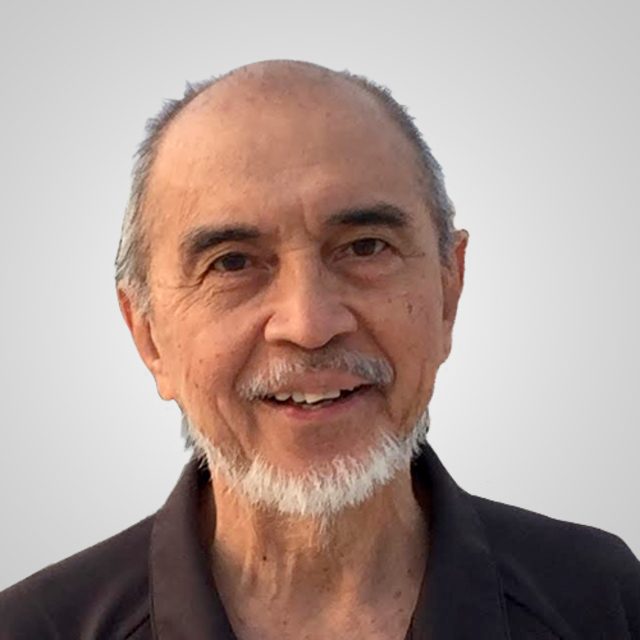SUMMARY
This is AI generated summarization, which may have errors. For context, always refer to the full article.
![[OPINION] Leni’s improbable journey](https://www.rappler.com/tachyon/r3-assets/612F469A6EA84F6BAE882D2B94A4B421/img/6871EEB5FEB2441982958FE5D0791C1B/robredo-re-imagines-resistance-november-16-2019.jpg)

Kairos is an ancient Greek word that best translates as “an opportune time” or better still perhaps, “a moment of grace.” VP Leni’s recent acceptance to take on the task of co-heading the country’s controverted “war on drugs” can perhaps best be seen in this game-changing context: an opportune time.
It likewise is a moment of grace for us to take a second look or for our leadership to be given another chance to take stock of what has happened in a drug-fixated crusade that has consumed countless victims.
Ma Leonor Gerona’s improbable journey
Maria Leonor Gerona studied at the Diliman campus of the University of the Philippines in the early ’80s. She was in her late teens then and had chosen as an elective a political science course I had taught at the university at the height of Martial Law. She always struck me as a thoughtful and reflective person, quiet – at least during class time.
But the real education of Leni took place on the streets and later the barrios she visited in Bicol where she was guided by her late husband Jesse. It was his example of listening first to people on the ground that jump-started her journey towards a brave brand of servant leadership that she later demonstrated after Jesse’s death. Her improbable run to the vice presidency against all odds was a testament to her tenacity.
It is no surprise then that this woman’s resolve is made of steel; that her mother’s instinct has always been to protect those entrusted to her care; that her approach has always been inclusive and collaborative, far-reaching.
VP Leni’s kairos is this moment of grace: to tackle a “war without end” that has become synonymous as she put it to a “war on the poor” – against those on the fringes of society.
Which brings me to another memory that begs to be shared.
Lessons from ‘Macondo’
Gabriel “Gabo” Garcia Marquez sat stoically at a conference at a venue in the heart of Mexico, Distrito Federal in the mid-’70s. It tackled the crimes of the Chilean military junta which consisted of the bloodbath that toppled President Allende in Santiago de Chile. I happened to sit next to the Colombian novelist during the gathering simply because we had a similar surname, and said, “Hola, tocayo.” At that conference, he pledged not to publish another novel until after the Pinochet dictatorship fell, and he described to me the image of Latin America as “Macondo” – where “reality at times can be stranger than fiction.”
And, the Colombia that I knew first as a student, later as a researcher for Amnesty International, and in the end as a protagonist in the peace process in the country on behalf of International Alert was precisely that: painted in the hues of Gabo’s Macondo. It was a country in the throes of “narco-politics” where more than a third of those who sat in Congress did so with funds laundered by the country’s drug lords backed up by the dreaded paramilitares; and, where guerrillas from the Fuerzas Armadas Revolucionarias de Colombia were equally charged by not a few as narco-guerrillas.
In his 2016 Nobel Peace Prize address, former Colombian president Juan Manuel Santos stated: “The manner in which the war against drugs is being waged is equally or perhaps even more harmful than all the wars the world is fighting today….” He believed that his country had paid the highest cost in deaths and sacrifices and it was time to rethink the so-called war on drugs.
Another Colombian president, Cesar Gaviria, echoed the warning to our own head of State soon after he had assumed office. In a New York Times op-ed critique of the failed war on drugs that obsessed his country, Gaviria concluded, “The cure has been worse than the disease.”
Nunca mas!
There is another phrase from my Latin American experience that haunts me: Nunca Mas! Never Again! It was uttered by the Argentinian writer Ernesto Sabato who led the inquiry of the desaparecidos (the disappeared) during the dark decades of military juntas. It reverberates today, because what the kairos moment requires not only of VP Leni but of all of us of good faith is this: Rethink! Refocus! Renew! Never Again! – Rappler.com
Ed Garcia is one of the framers of the 1987 Constitution.
Add a comment
How does this make you feel?
There are no comments yet. Add your comment to start the conversation.